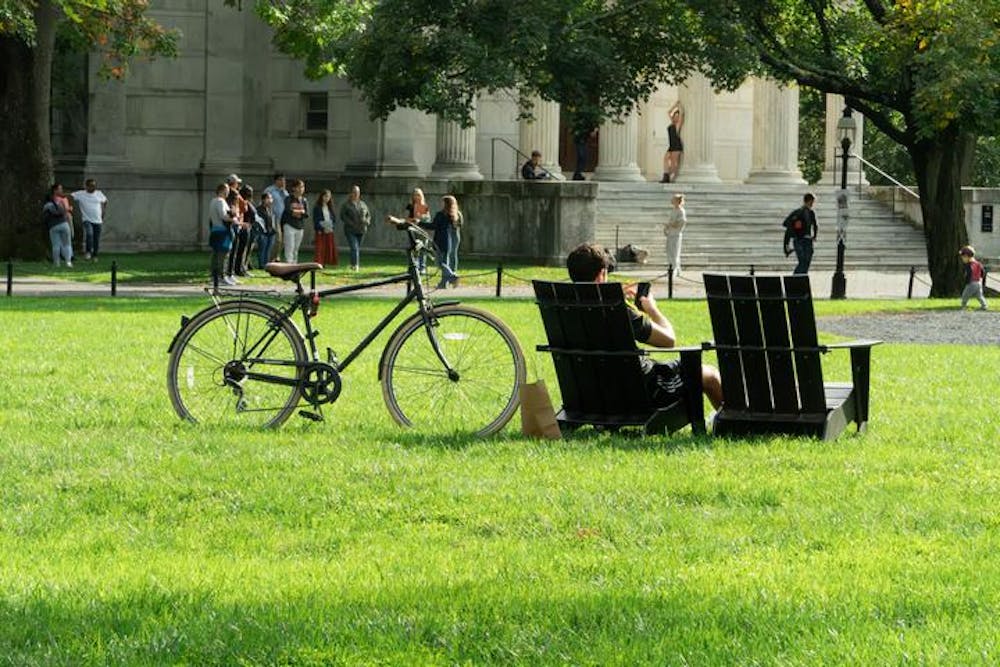I’m a first-year, and in less than a year, it’ll be time for me, my friends, and the Class of 2027 to join eating clubs. When we do, we’ll be looking for spaces where we can relax, socialize, and be among friends. We’re looking for places where we can have a reprieve from the fast pace of Princeton life, places where we can eat dinner, play pool, and sit around in complete comfort. For those of us of marginalized identities, that also means that we’re looking for a community that will respect us in a way that the outside world sometimes doesn’t. All of us, in our different ways, are looking for places where we feel at home. To phrase it in a way that has become controversial, we’re looking for safe spaces.
A few weeks ago, Matthew Wilson, a columnist and a member of the Charter Club wrote a column in the ‘Prince’ titled “We must not let eating clubs be ideological safe spaces.” This confused me — what is an eating club if not a safe space for its members? From the outside looking in, the clubs seem to be exactly that: a place for members to feel comfortable, relaxed, and safe. The problem is that Wilson fundamentally misunderstands the idea of a safe space, and the idea of community: The idea of creating “safe spaces” has been politicized and weaponized as part of a culture war when in reality it is merely a precursor to being in community with others.
In February, Wilson brought his professor Robert P. George to lunch. George is a conservative professor who is outspoken against abortion rights and same-sex marriage. Some Charter members were shocked and upset by seeing George in their club, which prompted a new guest rule: members bringing guests who were not friends or family would have to submit the guest to Charter officers for approval and notify all club members in advance. As Wilson himself wrote, the entire club was notified that “Charter is an inclusive private club that will never deny a member’s request to bring a guest to [their] sanctuary.” It is clear that these policies are intended to protect the comfort of all members while still allowing any and all guests to visit the club regardless of their political beliefs.
Eating clubs as “safe spaces” might appear alarming because of the way that the phrase has been twisted by social conservatives. But let’s go back to its literal definition: Oxford Dictionary defines “safe space” as “a place or environment in which a person or category of people can feel confident that they will not be exposed to discrimination, criticism, harassment, or any other emotional or physical harm.” Demanding that social clubs adhere to this definition seems reasonable to me, despite conservative talking points which would make it seem like an absurdly difficult standard.
Notice that this definition says nothing about the existence of conflicting social, religious, or political beliefs. Wilson specifically calls out the idea of an “ideological safe space,” and argues that the creation of these spaces is problematic because it hinges on limiting the scope of political and ideological debate. He fails to realize that safe spaces can be composed of people that disagree — in fact, ideological debates from a place of mutual respect and understanding oftentimes can strengthen a community, engaging members in mutual dialogue and hopefully bringing them to increased understanding.
Wilson fails to realize that these steps are not any sort of ideological imposition — the club is simply taking action to ensure all of its members continue to feel comfortable at Charter by making them aware of any outsiders who might be dining at the club. Wilson can invite Professor George to have lunch at Charter; other Charter members who are uncomfortable being around George can make other plans.
This incident shows that, oftentimes, when conservatives work themselves up about being confined by the rhetoric of “safe spaces,” they’re just protesting against one of the basic requirements of being in a genuine community with others: caring about people and respecting their feelings. Ensuring that no one faces discrimination on the basis of their inextricable characteristics is one element of creating a comfortable environment. It is nonsensical that a community, especially one like an eating club with strictly defined membership, would not seek to ensure the comfort of all its members.
The idea that George’s presence could be uncomfortable may not be understood by all, but that does not make it any less legitimate. It is uncomfortable, for some, to walk into a room knowing that there are people in it who fundamentally disagree with their human right to equality. People who feel that way deserve respect, especially from those who are supposed to be their community members. It is especially disrespectful to characterize personal discomfort on the basis of one's identity as an immature inability to share space with those who disagree. Charter leadership tried to respect and value the feelings of all its members by instituting a policy that addressed concerns while maintaining total inclusion, and was met with extreme backlash.

Campus conservatives, supported by outrage from Fox News and George himself, won their culture war and got the new guest policy reversed. This outcome is disappointing. I hope that Charter will still find a way to protect the comfort of all its members without having to face unnecessary backlash.
I am not naive enough to argue that all people are entitled to complete comfort in all spaces. Any marginalized person knows that our existence, equality, and abilities will be scrutinized and argued. It is also true that not everyone is entitled to comfort everywhere: there are times and places where the presence of differing ideologies, no matter how offensive, is a higher priority than the comfort of every individual. However, an eating club is a space where every member is equally part of the community, and therefore equally entitled to comfort.
Instead of seeing efforts to promote the comfort of all members of a social space as an ideological crusade, we should see it for what it really is — an act of kindness. Fostering community means creating spaces where everyone feels comfortable. Community relies on a mutual respect for each others’ feelings and desires, and sometimes that means compromise. Being in a community means caring about other people and respecting their feelings, and sometimes even putting them above something that you might want. We must not let culture wars and politics erode our sense of, or belief in, community, because without it we have nothing.
Ava Johnson is a first-year opinion columnist from Washington, D.C. She can be reached by email at aj9432@princeton.edu.









